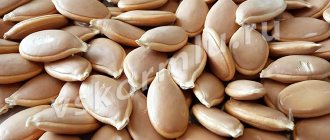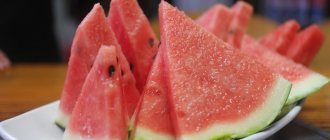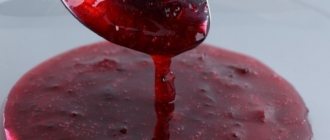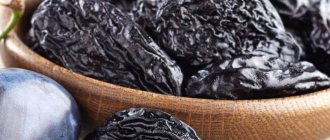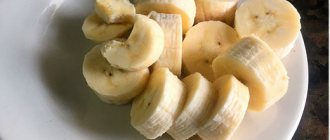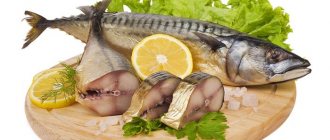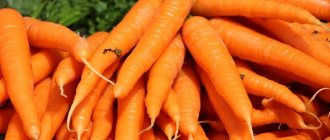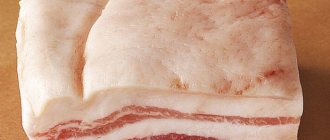Everyone loves seeds. They are tasty and, according to nutritionists, healthy. The very process of gnawing and extracting the treasured grain is interesting and more and more exciting. I want to gnaw and gnaw and gnaw. This can even lead to addiction.
The habit of gnawing seeds has a national character. If in America it is customary to chew popcorn while watching a movie, then the average family from Russia chews sunflower seeds while watching TV.
Is it possible to eat seeds in public places? Is this food or just a treat?
What is good and what is bad about this and how to treat seeds for guards? Is it possible to gnaw on treasured grains while caring for a child?
The article contains answers to all these questions.
The word “seeds” traditionally refers to sunflower seeds.
Is it possible to eat seeds while breastfeeding?
The skins of the seeds are often dirty and poorly processed. In 90% of cases, this concerns seeds that are sold on granny corners.
Seeds sold in stores (packaged in bags) are more sterile. They can be safely used.
The seeds can be eaten by a young mother during breastfeeding. Just follow two simple rules:
- The product must be clean.
- When breastfeeding, you need to start consuming small portions to make sure that your baby is not allergic to such food.
In order not to worry about cleanliness and calmly gnaw on purchased seeds, you can simply wash them and then lightly fry them in a frying pan or dry them in the oven.
In the first month
In the first month of life, the child’s gastrointestinal tract is still far from perfect. Therefore, approach the introduction of new products with caution. During this period, it is better to play it safe. Immediately after giving birth, you should not pounce on food and sweep away all the food that catches your eye. Try not to let the food harm your baby.
In the first month, start consuming seeds carefully, in small portions, and monitor the newborn’s reaction.
Correct introduction to the diet and consumption rate
Correct introduction of each new product to a nursing mother’s menu during breastfeeding is the basis for healthy nutrition for an infant.
If a woman wants to diversify her table with sunflower grains, sesame or pumpkin seeds while breastfeeding, she should start with 20 g per day. Gradually every day you can increase the portion.
Flax seed should be introduced when starting the consumption of a decoction or tincture of grains, with 10 g per day.
Eat any product during breastfeeding in moderation. The same applies to seeds. Half a glass of pumpkin or sunflower seeds a day will be enough to provide both pleasure and benefit. Drink no more than one tablespoon of flax grain decoction per day to get the benefits and not harm the infant.
Take no more than one teaspoon of sesame seeds per day.
Doctors recommend consuming the seeds between meals for the mother, about two hours before breastfeeding the baby. This will prevent unwanted mixing of products.
Roasted sunflower seeds
It is not fried seeds that are more useful during breastfeeding, but well-dried ones. When frying, vitamins A, E and D are lost. On the other hand, when frying in a frying pan, the kernels are disinfected. All harmful elements are destroyed.
To find the “golden mean”, fry the grains very briefly over low heat.
To the question: “Is it possible to eat seeds while breastfeeding if they are heavily fried?”, you can safely answer: “No, under no circumstances!”
In order to preserve vitamins and disinfect the seeds, dry them in a frying pan for a short time.
Norm of sunflower seeds for a nursing woman
A nursing mother should be careful about her diet and introduce any new product carefully. For the first time, 15-20 g of seeds per day will be enough. If the baby does not experience any negative reactions in the form of colic or skin rashes, then the dose can be gradually increased to 60-100 g per day.
Don't forget about the calorie content of the product! To provide the body with valuable vitamins and microelements, 100 g of seeds is enough. Larger amounts can cause obesity
Types of seeds
There are many types of seeds. Usually by seeds we mean sunflower grains. However, the seeds of many other plants are no less tasty and also provide benefits. Which of them are well received during breastfeeding, and which are contraindicated? Let's figure it out.
Pumpkin
There is a popular belief that pumpkin seeds get rid of harmful parasites such as worms. They do this gently without irritating the intestines.
“White” grains are not allergenic and can be eaten while breastfeeding.
Pumpkin grains contain many elements that heal hair, nails, skin, reproductive system and vision. They contain a lot of zinc, manganese, and magnesium.
Many mothers are interested in whether pumpkin seeds can be consumed while breastfeeding. Since they contain many useful substances, pumpkin seeds are a desirable product during breastfeeding.
Sesame
Sesame is rightfully considered the most delicious of all. Anyone who has tried it at least once will confirm this. However, it is also the most expensive.
It is not possible to grow sesame, like sunflowers or pumpkins, in central Russia, so obtaining its grains is only possible through purchase.
Sesame seeds are rare, however, they are a valuable dietary product. By consuming sesame seeds while breastfeeding, you will definitely not gain weight, and your body, like the baby’s body, will receive a lot of useful substances and vitamins.
Sesame seeds are the most expensive and rare.
Sesame supports the immune system, improves the condition of nails and hair, due to its high calcium content.
Is it possible for nursing mothers to include this valuable product in their menu? It is possible, but like everything else, in small quantities.
Sunflower
Sunflower grains, in addition to their pleasant taste, affect the body in the following ways:
- strengthens the cardiovascular system well;
- improve the functioning of the genitourinary organs;
- promote good condition of nails, hair, skin;
- promote lactation and increase the fat content of milk;
- improve the child’s mental and physical abilities due to the high content of vitamin D;
- help avoid depression due to vitamin A content.
Sunflower seeds will be a useful addition to the diet of a young mother while breastfeeding.
Linen
Flaxseeds, unlike pumpkin and sunflower seeds, are not consumed raw. Healing decoctions, tinctures, and medicinal jelly are prepared from them.
Since ancient times, flaxseed has been considered a useful product that has a cleansing and bactericidal effect. Scientists have found that flax seed improves human health if eaten regularly.
The secret of the effects of flax lies in the chemical composition of this product - a high content of useful substances and elements. Flax kernels are rich in amino acids and fatty acids, polysaccharides, fiber, and plant hormones. These substances are exactly necessary during breastfeeding.
The most famous healing effect is the ability of flaxseed to treat stomach diseases. Also, using flax kernels you can get rid of many problems:
- poor bowel function, chronic constipation;
- risk of heart attacks and strokes;
- high blood pressure;
- low immunity;
- poor liver function;
- cell aging.
Doctors recommend introducing flax into the diet gradually and in small doses; it is necessary to monitor the body’s reaction.
The same principles: gradual introduction in small doses should be applied when introducing flax seed into the diet of a nursing mother during breastfeeding.
Doctors do not give a clear answer to the question: “Can flax seed be consumed while breastfeeding?” But the gradual introduction of this valuable health product into the menu will tell you the answer to this question. If a mother and her infant feel well when this wonderful elixir is added to the mother’s diet, then it is safe to eat.
You need to start taking a decoction or tincture of flax seed with less than a teaspoon per day. If the organisms of both the nursing mother and the infant respond favorably to the introduced new product, the amount of decoction can be gradually increased to one tablespoon per day.
Flax seed is contraindicated for gallstones.
Product varieties
Seeds are used in different types and in different preparations, for example, the use of pomegranate, grape, and caraway seeds is known. But the most popular types are:
- flaxseeds are especially useful for women; they contain fiber, phenols, and linolenic acid. The benefit for the female body is to reduce the level of cancer development, antioxidant effect, stabilize hormonal levels and normalize the activity of the gastrointestinal system;
- sunflower - their consumption has a calming effect on a nursing mother, contains essential vitamin A, which is passed on to the baby, also has a positive effect on the color and condition of the mother’s facial skin, strengthens hair and nails;
- pumpkin - no less useful, they have a high content of zinc, which has a positive effect on vision, hair, and immunity. Pumpkin seeds rarely cause allergies. In folk medicine they are used to fight worms and are absolutely safe for babies;
- sesame seeds are the safest option for breastfeeding and are useful for both mother and baby. They are included in the diet menu, as they do not contribute to excess weight gain. They have a good effect on cholesterol levels, also help cleanse blood vessels, and contain calcium, which is necessary for teeth, hair and bones. A dosage of one teaspoon as a daily dose is considered beneficial.
Effect on the body of mother and child
Seeds during breastfeeding benefit mother and baby. However, young mothers are concerned about the question: “Will they cause harm if they are used for a long time during breastfeeding?”
Benefit
We have already seen the benefits of sunflower, pumpkin, sesame and flax seeds. With their use, not only the mother receives a lot of vitamins, but the infant, through mother’s milk, also has access to many useful substances.
If you consume seeds in moderation while breastfeeding, lactation will improve, which is very important in the first year of a baby’s life.
The benefit of pumpkin seeds lies in their natural antihelminthic effect, which further increases their value.
The zinc, manganese, magnesium, calcium, fiber, amino acids and fatty acids, vitamins A, B, C, D and E contained in the kernels are beneficial for the baby and the mother.
Harm
The seeds can be harmful to the baby and mother if they are contaminated. This often happens with sunflower seeds, because during industrial harvesting with combines a lot of dust gets on them. Seeds purchased by weight need to be washed and then dried in the oven. You can fry only lightly, since frying produces harmful carcinogenic substances and kills a large number of beneficial substances.
According to production rules, grains packaged in bags must be washed before packaging. But is this rule followed? Check by rubbing the grains between your fingers. If your hands become dirty after this procedure, it is better to wash and dry the seeds as described above.
You should not buy peeled, peeled seeds. There are no more useful substances in such food. Also, do not eat salted seeds.
Young parents should not forget that seeds are high-calorie foods. If a mother is prone to obesity, it is worth considering seriously limiting herself in relation to this product during breastfeeding.
Breastfeeding experts insist on the introduction of any new product in a gradual and measured manner. This also applies to seeds.
Doctor Komarovsky's opinion
What does Dr. Komarovsky, respected by young mothers, think about adding seeds to the diet of a nursing woman?
The doctor does not give a direct answer to this question, however, he speaks out about the use of pumpkin seeds to get rid of worms. Komarovsky reminds that not all parasites are susceptible to death from pumpkin seeds, and that you need to eat too many seeds at one time to get rid of unwanted worms.
If a problem with worms is identified, it is logical to treat with medications, and use pumpkin grains in the diet as a preventive measure.
Doctors at the Komarovsky clinic speak positively about pumpkin seeds. In their opinion, they improve mood, improve the state of the nervous system, increase performance and fight fatigue. And this is important for mothers during breastfeeding.
Doctors also recommend including dishes with the addition of sunflower seeds in a nutritious breakfast for children over five years old. This is not proof of their usefulness for adults and infants.
Can a nursing mother have pumpkin seeds?
The lactation period is a time when special attention is paid to the diet. Many familiar foods are prohibited or limited during breastfeeding for fear of harming the child. Although recently doctors are no longer as categorical as before, the selection of products is quite strict.
The female body's need for nutrients during breastfeeding increases significantly. To maintain full lactation, food must be both light and very healthy, and in a situation of limited choice this can be difficult to ensure. Therefore, pumpkin seeds, as a natural concentrate of nutrients, minerals, vitamins, and light fats, are especially welcomed by doctors.
When used correctly, the seeds can not only support a woman’s body with useful components, but also solve issues of restoring the reproductive system and the entire body after childbirth.
If you have an addiction
Chewing seeds is bad. What is this connected with? Previously, representatives of the lower class, market traders, and villagers had the habit of gnawing seeds. With the development of culture, this habit is increasingly becoming a thing of the past. However, it is really possible to become addicted to such an innocent activity as eating seeds.
To avoid addiction, try to limit yourself and not get carried away with activities such as eating seeds. Everything is good in moderation. If you remember this, then you will not face any addiction.
But if you have already become a victim of a habit, you need to try to switch to something else, more harmless. By the way, pumpkin seeds are not as addictive as sunflower seeds. It might be worth switching to them.
Don't buy too many seeds at once.
Buy a daily portion of seeds every day and you simply won’t be able to eat more since you won’t have any more of them.
If you can’t keep your appetite within the daily norm, you should try self-hypnosis. Thoughts have a powerful effect on us. By convincing yourself that excessive consumption of seeds is harmful to you and the health of your child, since he is breastfed, you can get rid of the bad habit.
If a child has a negative reaction to the seeds, their use should be stopped immediately.
How many seeds can you eat during breastfeeding?
Even the healthiest product can cause unpleasant consequences if not taken in moderation. For the first time, it is recommended to consume no more than thirty grams of the product. For two days it is necessary to monitor the child’s reaction to the treat. In the absence of intolerance, the permissible norm is eighty grams per day. You should not drink the seeds with sweet drinks. This combination will cause increased gas formation in the baby and abdominal pain.
Raw, dried seeds are considered the most useful. It should be consumed between meals, divided into several doses. The optimal time to eat is immediately after feeding. The daily intake of sesame seeds is a tablespoon. This amount is enough to enrich the milk with valuable vitamins and benefit the mother.
We recommend reading: Allergenic foods for breastfeeding
Selection and storage
Like other food products, the healthiest grains are those that you grow in your own garden. This applies to pumpkin and sunflower seeds.
In other cases, there is a risk of encountering poor quality food. To reduce the risk, wash the seeds before eating and dry them in the oven.
Buy seeds in sealed containers. Choose the manufacturer especially carefully. The brand must be famous.
Seeds can be stored for up to 10 months. Since seeds are afraid of humidity, it should not exceed 75%. Storage temperature is room temperature.
When properly stored and prepared, zinc, manganese, magnesium and other beneficial substances are preserved. The fact that pumpkin grains are rich in zinc makes them even more attractive in the eyes of nutritionists.
